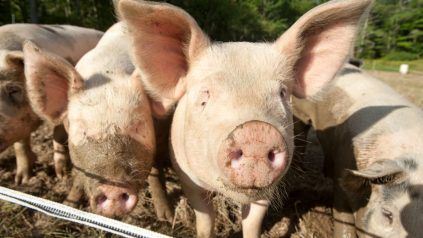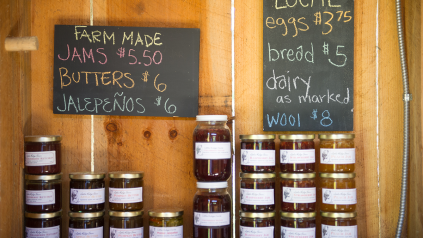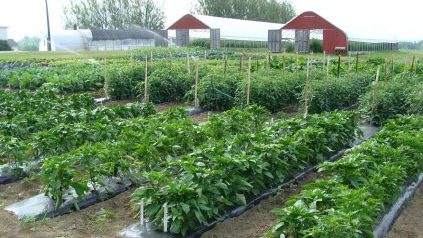Learn On Your Own
Are you looking for self-guided training opportunities from an expert in the field or from an accredited, research-based, and trusted organization, institution, or government entity?
Perhaps you are in need of opportunities and resources that allow you to access and review at a time at your own pace or at a speed that is convenient for your busy schedule.
Farm Business Management and Farm Safety Resources
(All University of Maine Cooperative Extension resources unless otherwise noted)
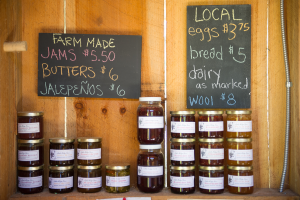 New Farmers: What is a Farm Enterprise? (YouTube)
New Farmers: What is a Farm Enterprise? (YouTube)- How to Create a Farm Business Plan (YouTube)
- Market Research for Farm Products (YouTube)
- Starting a Farm Business (YouTube)
- Starting a Farm Business in Maine (YouTube)
- A Guide to Doing Business in Maine (Maine Department of Economic and Community Development)
Click the link to visit the Maine DECD website to order the publication.
- A Resource for Farmers and Agriculture Business (YouTube)
- AgrAbility: Is Farming for Me? (YouTube)
- So You Want To Farm In Maine, Self Assessment
- Starting a Small Business
Visit the University of Maine Cooperative Extension’s Publications site to view, download or print Small Business publications that can be found on the Business and Community page.
Record Keeping
- New England Farm Account Book
Visit the UMaine Extension’s Livestock site to download an Excel spreadsheet to help organize and track farm finances: New England Farm Account Book as well as the accompanying set of Directions for Using the Microsoft Excel version of the New England Farm Account Book.
- Farm Taxes Webinar: Don’t Fear the Schedule F!
Risk Management
- Crop Insurance in Maine
- Crop Insurance Education Program
Learn how the Maine Risk Management and Crop Insurance Education Program can inform Maine farmers of crop insurance programs to help reduce risk and increase financial stability.
For more information about crop insurance, visit the UMaine Extension’s Maine Risk Management and Crop Insurance Education Program.
- Farm Food Safety Plans: Need help writing yours?
For more information, visit the Jumpstart to Farm Food Safety with Extension page on UMaine Extension’s Food & Health website.
Farmers’ Markets are a great way to connect with local consumers and tourists interested in buying local produce and value-added food products. Farmers, vendors, and consumers can do their part in making sure proper food handling practices are followed for a safe and enjoyable Farmers Market season.
- Maine Farm Safety Program (Extension Publications)
Tractors and Equipment
Livestock Production Resources
(All University of Maine Cooperative Extension resources unless otherwise noted)
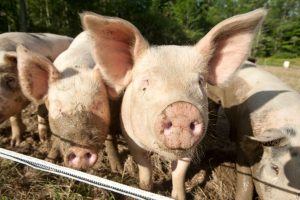 Beef
Beef- Poultry
- Equine
- Sheep and Goats
- Swine
- Veterinary Diagnostic Lab
- ‘From Farm to Table Fare’ Video Series
Farm Sitters:
- Intro to the Maine Farm Sitters Course (video)
- Farm Sitting as a Business (video)
- Interview with a Farmer (video about farmers hiring farm sitters)
- Determining Farm Animal Health (Video)
- Biosecurity Tips and Tools (Video)
Fencing Resources:
HAY and STRAW resources:
- Mitigating Short Hay Supplies in Beef Production Systems
- Saving Forage by Early Weaning Beef Calves
- Reducing Costs During Forage Shortages Through Culling
- Lowering Forage Demand by Creep Feeding
- Do you have enough hay for the winter?
- Hay Directory
- Northeast Grazing Guide
- Straw Directory
- Maine Grass Farmers Network (Wolfe’s Neck Center for Agriculture and the Environment )
Vegetables and Fruit Resources
(All University of Maine Cooperative Extension resources unless otherwise noted)
Vegetable Production
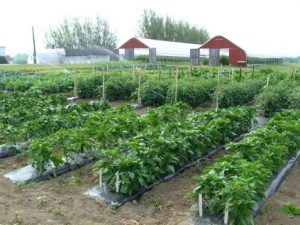 Vegetable Publications
Vegetable Publications- Fruit Publications
- Cover Crops and Soil Health Publications
- Farmer Skill and Knowledge Checklists
Small Fruit Production
- Low Bush Blueberries Publications
- General Agriculture Publications
- Growing Strawberries (publications and videos)
Strawberries are an excellent crop for both home gardeners and commercial farmers in New England. With proper care, strawberry beds will produce good crops for three to five years, beginning one year after planting. An initial planting of 100 plants should provide enough fruit for a family of four, with a surplus to freeze or make preserves.
Join David T. Handley, vegetable and small fruit specialist, University of Maine Cooperative Extension, to learn some tips and tricks for growing strawberries in this series of four videos:
-
- Planting and First Season Care: How to Grow Strawberries: Planting A Strawberry Bed (YouTube)
- Mulching: Getting Strawberry Plants Ready for Winter (YouTube)
- Renewing the Planting: How to Grow Strawberries: Renovating an Old Strawberry Bed (YouTube)
- Disease and Insect Control: How Do I Grow Strawberries in the Off-Season? (YouTube)
To learn more about growing strawberries, review Bulletin #2067, Growing Strawberries on UMaine Extension’s Publications website.
Cut Flower Production
-
- Growing Cut Flowers: Floret, MOFGA, Johnny’s
- Cut Flower Sources:
- Seed Sources: Johnny’s, Botanical Interests, Plant Hart Seeds, Pinetree Seeds
- Peonies Source: Fieldstone Gardens
- Tulip Sources: Johnny’s, Van Engelen
- Dahlias Source: Veggies to Table
This is a list of nurseries and seed companies known to be offering plant varieties suitable for Maine. No endorsement is implied nor is any discrimination intended.
Pesticide Safety
- Pesticide Educational Resources/Manuals (UMaine Cooperative Extension Store)
- Videos & Quizzes for MBPC Recertification (UMaine Cooperative Extension Store)
Pests and Diseases
- Storage Conditions: Fruits and Vegetables (publication)
- Insect Pests, Plant Diseases and Pesticide Safety (publications)
Visit the University of Maine Cooperative Extension’s Publications site to view, download, print or purchase publications on the following topics:
- Defending Against Spotted Wing Drosophila (YouTube)
- Identifying Late Blight (YouTube)
- New Maine Farmers: What is Integrated Pest Management? (YouTube)
- Soil Testing at the University of Maine (YouTube)
NOTE: Soil testing prices have changed since the making of this video; please, check the Soil Testing Service website for up-to-date pricing.
In complying with the letter and spirit of applicable laws and pursuing its own goals of diversity, the University of Maine System does not discriminate on the grounds of race, color, religion, sex, sexual orientation, transgender status, gender, gender identity or expression, ethnicity, national origin, citizenship status, familial status, ancestry, age, disability physical or mental, genetic information, or veterans or military status in employment, education, and all other programs and activities. The University provides reasonable accommodations to qualified individuals with disabilities upon request. The following person has been designated to handle inquiries regarding non-discrimination policies: Director of Equal Opportunity, 5713 Chadbourne Hall, Room 412, University of Maine, Orono, ME 04469-5713, 207.581.1226, TTY 711 (Maine Relay System).

